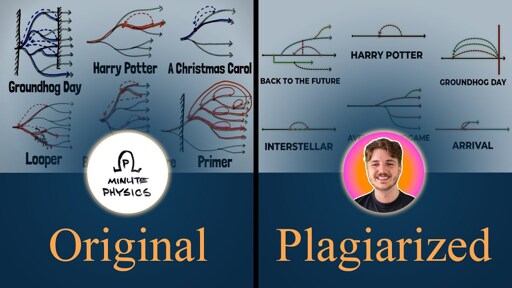I can be then academic association this kind of magic?
TheTechnician27
“Falsehood flies, and truth comes limping after it, so that when men come to be undeceived, it is too late; the jest is over, and the tale hath had its effect: […] like a physician, who hath found out an infallible medicine, after the patient is dead.” —Jonathan Swift
- 54 Posts
- 604 Comments

 29·4 days ago
29·4 days agoYeah, OP, it’s just that easy; like this:
Whoa, WHO getting 🔫SHOOTED💦 like that? 🫦It’s Charlie Kirk 🍆👓, the SEXY little conservative taking a hot long DICK 😍🍆 right in his 𝒻𝓇𝑒𝒶𝓀able face 🍑, am I right? 😂 Hot and STEAMY💦 with a side of GUSHING! 💦😋 Time to call the AMBULANCE🏥⁉️ but first LETS DRIP 💦 that sweet, messy blood 🩸 on the floor like a freshly SPLATTERED 🍅sauce! 🍅💦🍆🍑💦💋, always preaching 🍗 about his FAVORITE policies 📰, finally getting his mouth hole STUFFED 👅🍌 we know he’s just trying to get that HARDCORE applause 👏💦 from the crowd, while secretly wanting to DICK-tate some sweet ASS 🍑! With his hands on the podium 👐🏻, he’s got those CUM-suming ideas 💭💦💦 that make people go spewing 🗣️ like they just saw the hottest Twerk dance! 🍑💃💦 Now send this to 6️⃣ of your most HORNIEST friends 🥵💌 or else you’ll be money shotted next 💰🔫 👅💋💦
Oh hey, this is the same person behind the “Lookin’ good, Susan” comic.
Zuck’s face is also completely fucked. He looks like an alien in real life already, but here it looks like his eyes and mouth have been paved over by a layer of skin.

 42·6 days ago
42·6 days agoIt’s only legal if you can build up enough speed to move to the parallel board in a single frame.

 37·8 days ago
37·8 days agoNever listened to AM radio in the 90s, OP? FM too with Rush “I feel sorrier for the lung cancer” Limbaugh?

 25·9 days ago
25·9 days agohe inherited Vietnam from Kennedy
He co-authored the Southern Strategy, he deliberately sabotaged the Vietnam peace talks to win the election, he explicitly targeted racial minorities and the anti-war left by starting the war on drugs, and need I even mention the obvious?
That what Slick wanted to do would not have helped is not an invitation to whitewash this monster.
Edit: And you mean “from LBJ”, unless you mean to say that Kennedy started US involvement, which he didn’t.

 46·10 days ago
46·10 days ago50–150 μg. 600 μg would severely fuck you up – let alone if you’ve never used it.
- Probably cheap as dirt.
- Entertains very small kids who are statistically going to be the loudest, most impatient ones.
- Engaging for those small kids neurodevelopmentally.
- Hard to damage.
- Not ingestible; hard to otherwise hurt yourself or others with it.
- Can put it basically wherever and even screw it down onto a table.
- Too big for someone (especially a kid) to steal.
- Very quiet even if you’re playing very aggressively with it.
- Cross-cultural (e.g. no language involved).
- Not consumable like crayons.
It’s got too many things going for it.

 6·12 days ago
6·12 days agoThis got reported as “not LAMF” on the grounds that this person voted for lower grocery prices and got higher ones. This is an understandable argument, because just getting tricked on its own (even if you’re unbelievably stupid to think that things like illegal tariffs and deregulation wouldn’t do this) is not LAMF.
So let me explain why I kept the post up and still think it fits: she expressly voted for somebody who promised to cut programs like SNAP which make Thanksgivings affordable for millions of people. She expressly wanted these people hurt – to have their Thanksgivings ruined – because to her, they didn’t deserve it.
“I never thought the leopards would make groceries unaffordable for me!”
Edit: That said, @bytesonbike@discuss.online, please add alt text to your image or a transcription in the post body for accessibility in accordance with Rule 4.
God bless you, Chargeman Ken.

 95·18 days ago
95·18 days agoYou’re not contradicting anything they said, and you’re not contradicting that Steam is a monopoly.

 2927·18 days ago
2927·18 days agoThat tends to happen when you have a monopoly on an industry where you get 30% of the revenue from other people’s hard work.
 31·28 days ago
31·28 days agoOne who apparently needs a deep learning model to wipe your own ass for you.
 15·29 days ago
15·29 days agoStop spamming LLM slop, OP, you disingenuous fuck. I’d rather have two-sentence takes than a one-sentence take you had an LLM turn into 12.

 5·29 days ago
5·29 days agoStop spamming LLM slop, OP.

 211·29 days ago
211·29 days agoStop spamming LLM slop, OP.

 7·29 days ago
7·29 days agoStop spamming LLM slop, OP.















Wine/11